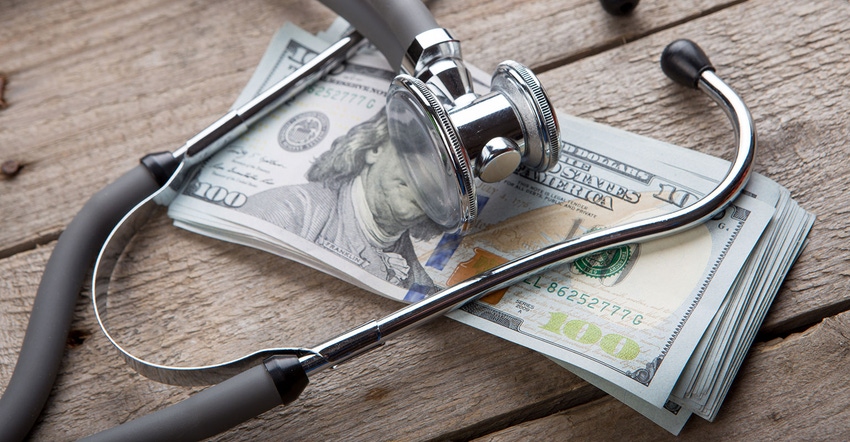
Due to COVID-19, some farm families are experiencing layoffs or furloughs from off-farm jobs and possibly losing access to health insurance.
"The COVID-19 pandemic has resulted in layoffs, and we know that many farm families have one or more individuals with an off-farm job. One reason for having an off-farm job is because of health insurance coverage, so people who are getting laid off or furloughed might be losing their insurance coverage," said Florence Becot, Ph.D., a rural sociologist and associate scientist with the National Farm Medicine Center, Marshfield Clinic Research Institute, Marshfield, Wis.
COVID-19 is also affecting the farm economy and commodity markets.
"In Wisconsin, we are known as a dairy state," Becot said. "The dairy prices and demand have been going down, so there are questions about what is going to happen to farmers' income. A drop in farm income might also have an impact on health insurance premiums."
Health insurance options
Farm families who are seeing a decrease in income (as a result of an off-farm job loss, cut work hours, or drop in farm income) and who bought a plan on the health insurance marketplace may be eligible for a lower health insurance monthly premium.
"To find out if the premiums could be lower, farmers can log onto healthcare.gov to update their income," Becot said. "An insurance agent may also be able to help.
"There's a lot of variation from one state to another in terms of where you get your coverage and what is available, so an important resource is healthcare.gov."
The website allows users to view insurance options and recommendations based on their states. It is important to keep up with health insurance options yearly, especially if purchasing a plan through the marketplace, to see if changes in income affect the price.
"Loss of job-based health insurance coverage is a qualifying event to purchase coverage outside of the open enrollment period and this can be a cheaper alternative to paying for the continuation of employer-based health coverage through COBRA," Becot said.
Health insurance is not only important in terms of access to healthcare but also affects your wallet.
"We know the price of health insurance can impact the farm business as well, depending on how much they're paying for their insurance and where they're getting it from," she said.
Mississippi insurance options
Fourteen states have reopened their marketplace for a special enrollment due to COVID-19, which means that people who didn’t have coverage but would like coverage now can enroll in those states.
"For Mississippi, the recommendation is for people who are losing employment and coverage to review what is available in the health insurance marketplace, call (800-562-2957) or visit the Mississippi Insurance Department website at https://bit.ly/ms-gov-health-insurance, or speak with an insurance agent about options," Becot said. "All should have resources to help people understand their options including finding a plan, if they have a qualifying event that allows them to change their plan, and check if they are eligible for health insurance tax credit or public coverage.”
Recommendations vary greatly by state, so it is best to seek specific recommendations from state health insurance resources.
Healthcare during COVID-19
Access to healthcare for non-emergency health concerns during the COVID-19 pandemic is also a trepidation amongst individuals.
"Many clinics have closed their doors to non-essential patients to help prevent possible exposures to the COVID-19 virus, but also to prepare for a potential surge in patients with COVID-19," Becot said. "Larger health care providers have ramped up telemedicine to be able to speak with a healthcare provider without going to the doctor. At the same time, some telehealth services require the internet, making it difficult for rural areas that do not have access to a good internet connection."
A nurse or doctor will decide if you need to be seen at a clinic, or they may be able to help entirely remotely for minor ailments or chronic health conditions.
"In light of continuing changes from COVID-19, it's hard to say this or that is best," Becot said. "I think the best recommendation we can give to farmers and rural residents is to call an insurance agent or go to healthcare.gov. Call your primary care provider or local hospital; they're the ones who are truly on the front lines and who are keeping tabs on how things are changing in different parts of the country."
About the Author(s)
You May Also Like




